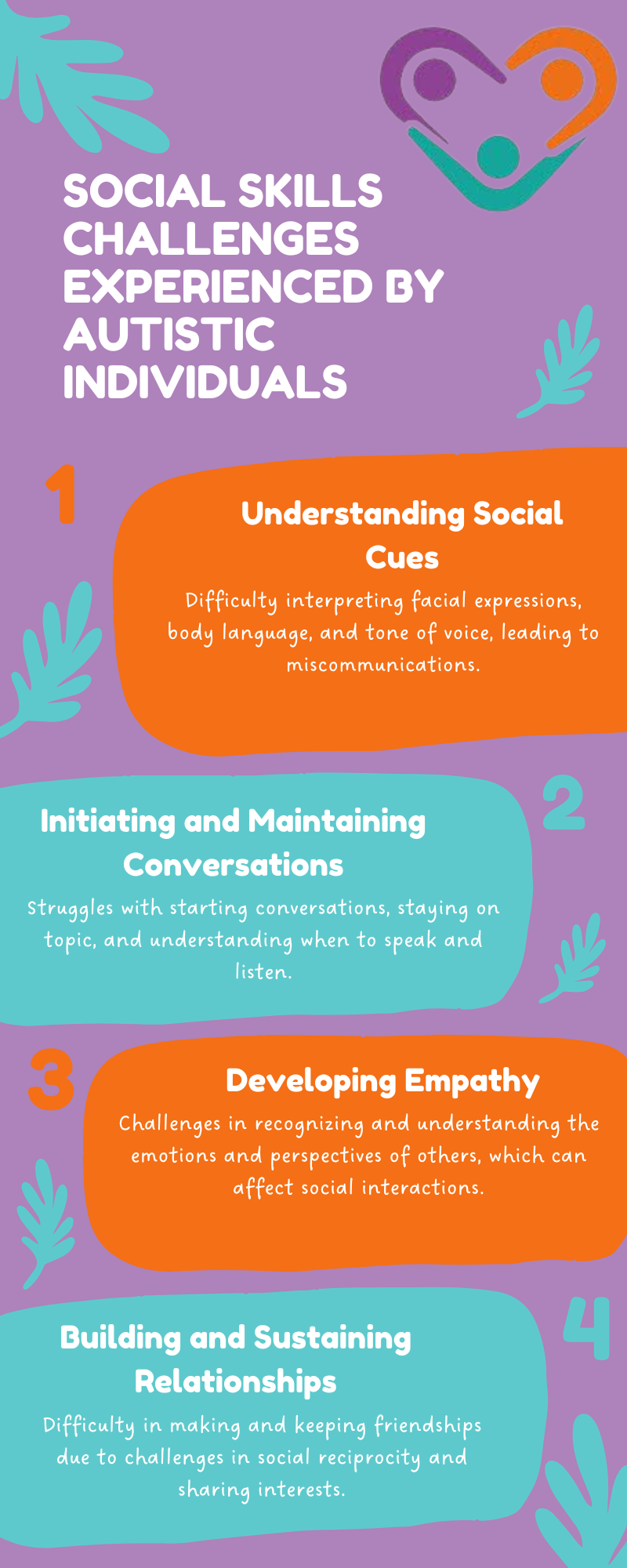Navigating social situations can be challenging for many individuals with high-functioning autism. While they may excel in areas like attention to detail and problem-solving, connecting with others in everyday social settings often requires extra effort.
Social skills are a vital part of our daily lives, influencing how we make friends, share ideas, and work together. For those with high-functioning autism, developing these skills can make a significant difference in building relationships and feeling more confident in social environments. Functional analysis can help identify specific challenges and guide targeted strategies to enhance social skill development effectively.
This journey isn’t always straightforward, but with the right tools and understanding, meaningful connections are within reach.
Characteristics of High-Functioning Autism
High-functioning autism is characterized by individuals displaying typical to above-average intelligence levels along with challenges in social communication and interaction. Some common characteristics of high-functioning autism include:
- Difficulty with verbal and non-verbal communication, such as understanding social cues and maintaining conversations.
- Engaging in repetitive movements or routines, often with a specific focus on interests.
- Heightened sensitivity to sensory stimuli like light, sound, touch, and taste.
- Strong focus on detail-oriented tasks and areas of interest, along with challenges in flexible thinking and problem-solving.
Also, individuals with high-functioning autism often encounter various social skills challenges that can impact their daily interactions and relationships. Some of the common social skills challenges experienced by individuals with high-functioning autism include:

Understanding these characteristics and social skills challenges is crucial in formulating personalized strategies and interventions to support the social development and overall well-being of individuals with high-functioning autism.
Importance of Social Skills Development
Enhancing social skills for those with high-functioning autism not only fosters greater connectivity and understanding but also plays a vital role in navigating daily interactions and forming meaningful relationships.
Improving social skills yields a multitude of benefits for individuals with high-functioning autism. By honing these skills, individuals can enhance their ability to communicate effectively, understand social cues, and engage in reciprocal interactions.
Some key advantages of bolstering social skills include:
- Enhanced communication and expression
- Improved empathy and perspective-taking
- Strengthened relationships and social connections
- Increased self-confidence and self-esteem
- Greater independence and social integration
Through targeted interventions and practice, individuals with high-functioning autism can reap these benefits and navigate social situations with increased confidence and competence.
Strategies for Enhancing Social Skills
For individuals with high-functioning autism, enhancing social skills is a key aspect of their development and overall well-being. There are various strategies and interventions available to support individuals in improving their social interactions.
There are two common approaches in this regard which are as follows:

Social Skills Training Programs
Social skills training programs are structured interventions designed to teach individuals specific social skills and behaviors. These programs typically include targeted lessons and activities aimed at enhancing communication, social interaction, and emotional regulation.
Social skills training programs are often conducted in group settings, allowing individuals to practice their skills in real-life scenarios.
One of the key benefits of social skills training programs is the opportunity for individuals to learn and practice social skills in a supportive environment. These programs are tailored to address the unique social challenges faced by individuals with high-functioning autism, helping them build confidence and improve their social competence over time.
Applied Behavior Analysis (ABA) Therapy
Applied Behavior Analysis (ABA) therapy is a widely recognized and evidence-based intervention for individuals with autism spectrum disorder, including those with high-functioning autism.
ABA therapy focuses on understanding and modifying behavior to enhance social skills, communication, and overall functioning.
ABA therapists use systematic techniques to analyze behavior patterns, identify areas for improvement, and implement customized interventions to target specific social skills deficits.
Through structured and consistent reinforcement strategies, individuals with high-functioning autism can learn and apply social skills in various social situations.
Utilizing data-driven approaches, ABA therapy helps individuals with high-functioning autism acquire and generalize social skills across different contexts. By breaking down complex social behaviors into manageable steps and providing positive reinforcement, ABA therapy empowers individuals to navigate social interactions more effectively and build meaningful relationships.
Incorporating both social skills training programs and ABA therapy can provide a comprehensive and individualized approach to enhancing social skills in individuals with high-functioning autism.
These strategies not only support skill acquisition but also promote greater social engagement and long-term success in various social settings.
Specific Social Skills to Target
In individuals with high-functioning autism, the development of specific social skills plays a crucial role in improving overall social interactions and relationships. Targeting key areas such as communication skills, social interaction skills, and emotional regulation skills can significantly enhance social functioning and quality of life.

Communication Skills
Enhancing communication skills is essential for individuals with high-functioning autism to effectively express themselves and engage in meaningful interactions. Some important aspects of communication skills include verbal and non-verbal communication, understanding social cues, and practicing active listening.
Effective communication strategies can be developed through targeted interventions and practice. These may include speech therapy, social skills training, and the use of visual aids to support communication. By focusing on improving communication abilities, individuals with high-functioning autism can connect with others more successfully and navigate social situations with greater ease.
Social Interaction Skills
Social interaction skills refer to the ability to initiate and maintain interactions with others, interpret social cues, and engage in reciprocal communication.
Individuals with high-functioning autism may benefit from targeted interventions that focus on improving social skills such as making eye contact, turn-taking during conversations, and understanding social norms.
Practicing social interaction skills through role-playing scenarios, peer modeling, and structured social activities can help individuals with high-functioning autism feel more confident and comfortable in social settings. By honing these skills, they can build positive relationships, form connections, and participate more fully in social interactions.
Emotional Regulation Skills
Emotional regulation skills are crucial for individuals with high-functioning autism to manage and express their emotions appropriately in different social contexts. Challenges with emotional regulation can impact social interactions and relationships, making it essential to target this skill set through tailored interventions.
Strategies for enhancing emotional regulation skills may include cognitive-behavioral therapy, mindfulness techniques, and sensory regulation strategies. By learning to identify and regulate their emotions effectively, individuals with high-functioning autism can navigate social situations more smoothly, cope with stressors, and build resilience in their social interactions.
Focusing on developing communication skills, social interaction skills, and emotional regulation skills can empower individuals with high-functioning autism to navigate social challenges more effectively and engage more meaningfully with others.
Conclusion
Mastering social skills can be a powerful tool for individuals with high-functioning autism, helping them build stronger connections and navigate the world with more confidence.
While it might take time and practice, every step toward understanding social cues, improving communication, and managing emotions can make a meaningful difference in their daily lives.
Embracing these challenges with patience and persistence leads to personal growth and more fulfilling relationships for individuals with high-functioning autism. At Golden Care Therapy ABA, we are dedicated to providing high-quality autism services that foster growth and progress.
We offer expert ABA therapy tailored to meet the unique needs of each individual. Our team is committed to helping you achieve meaningful goals and navigate life’s challenges with confidence.
If you’re looking for professional autism services in New Jersey, Indiana, New York, Georgia, or Florida, don’t hesitate to reach out. Contact us today to learn more about how our services can make a positive difference in your life!
Sources:



